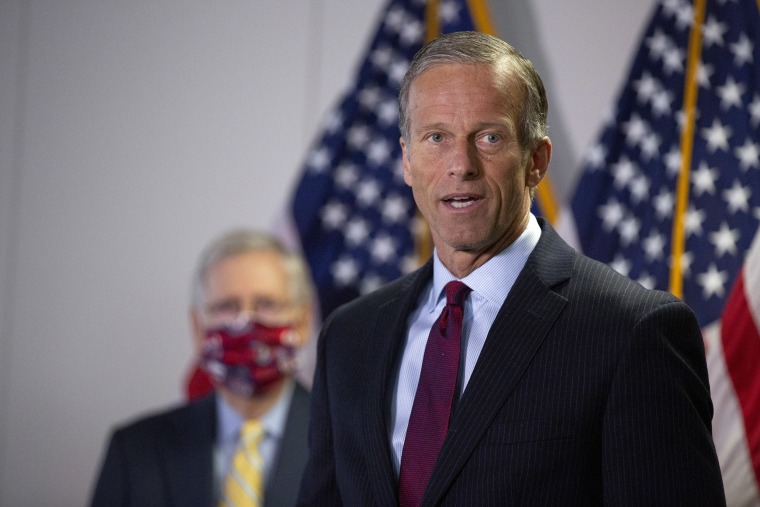There have been a striking number of reports in recent days about Republicans appearing to break with Donald Trump in the wake of last week's attack on the U.S. Capitol. The Associated Press reported over the weekend, for example, "President Donald Trump's steadfast grip on Republicans in Washington is beginning to crumble, leaving him more politically isolated than at any other point in his turbulent administration."
The New York Times added, "After years of excusing or ignoring President Trump's most inflammatory rhetoric, many Republicans are backing away at the last minute."
It's probably best to take this with a grain of salt. While there is some evidence of the GOP establishment splintering, the chasm is hardly great: I can count the number of congressional Republicans calling for Trump's ouster on one hand. For that matter, no one should forget that a majority of the GOP lawmakers in Congress voted to reject electoral-college results last week -- after the riot Trump helped incite.
Trump faces more intra-party opposition than he did a week ago at this time, but it'd be an exaggeration to think Republicans are abandoning him in droves.
That said, Senate Majority Whip John Thune (R-S.D.), the Senate's #2 GOP leader, made an interesting comment along these lines on Friday.
"We've got to chart a course,'' Sen. John Thune (R., S.D.) told reporters at the Capitol. "I think our identity for the past several years now has been built around an individual. And we've got to get back to where it is built on a set of ideas and principles and policies, and I'm sure those conversations will be held. But it needs to happen pretty soon."
Thune appears eager to thread a political needle: the South Dakotan is reluctant to come right out and denounce Trump, but he's nevertheless eager to focus his party on a new, not-Trump-like direction.
That's not a bad place to start, of course, though there's a problem the Senate majority whip has yet to address: how does a party base itself on a set of "ideas" and "policies" when that same party has abandoned its role as a governing party?
A few weeks ago, as some in the GOP took stock of their setbacks, Sen. Lindsey Graham (R-S.C.) said the only real problem facing the party was the way in which it spoke about its agenda.
"Our problem is tone, [the Democrats'] problem is policy," Graham said of the two major parties. "We've both got to overcome problems, but I like our chances better because we can act better and it's harder for them to legislate differently."
This belief might make the senator feel better, but Republicans have spent the last decade or so failing to legislate or engage in the policymaking process in any meaningful way. For the first time since the 1850s, the party didn't even bother to write a platform last year. I wrote a book about the fact that the GOP has become a post-policy party to help drive home the point that contemporary Republicans have given up on solving problems and governing in a serious way.
If Thune is sincere about the GOP being built on "a set of ideas and principles and policies," that'd be a positive development for everyone. It would also represent a dramatic break with the party's direction from the last 12 years.

